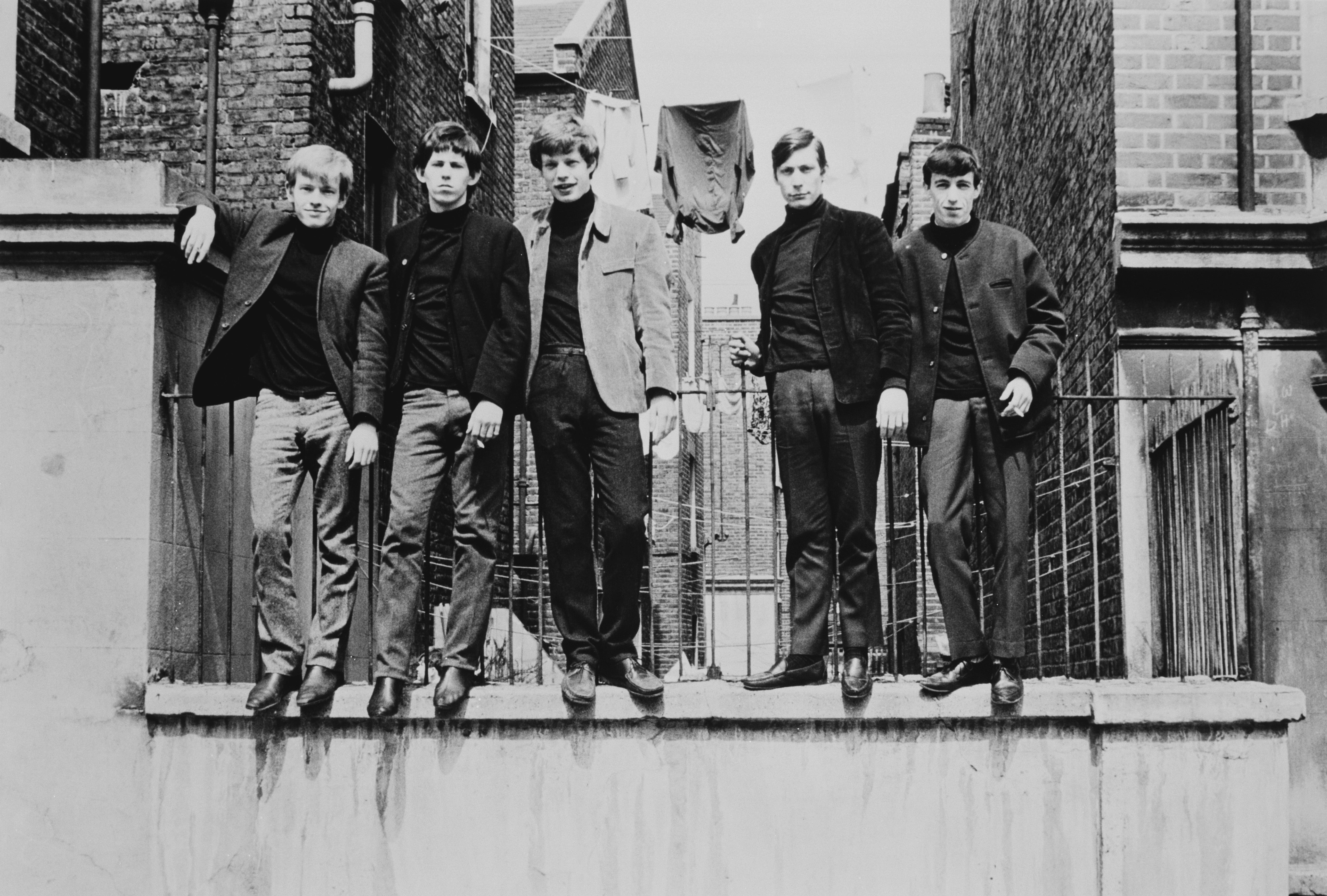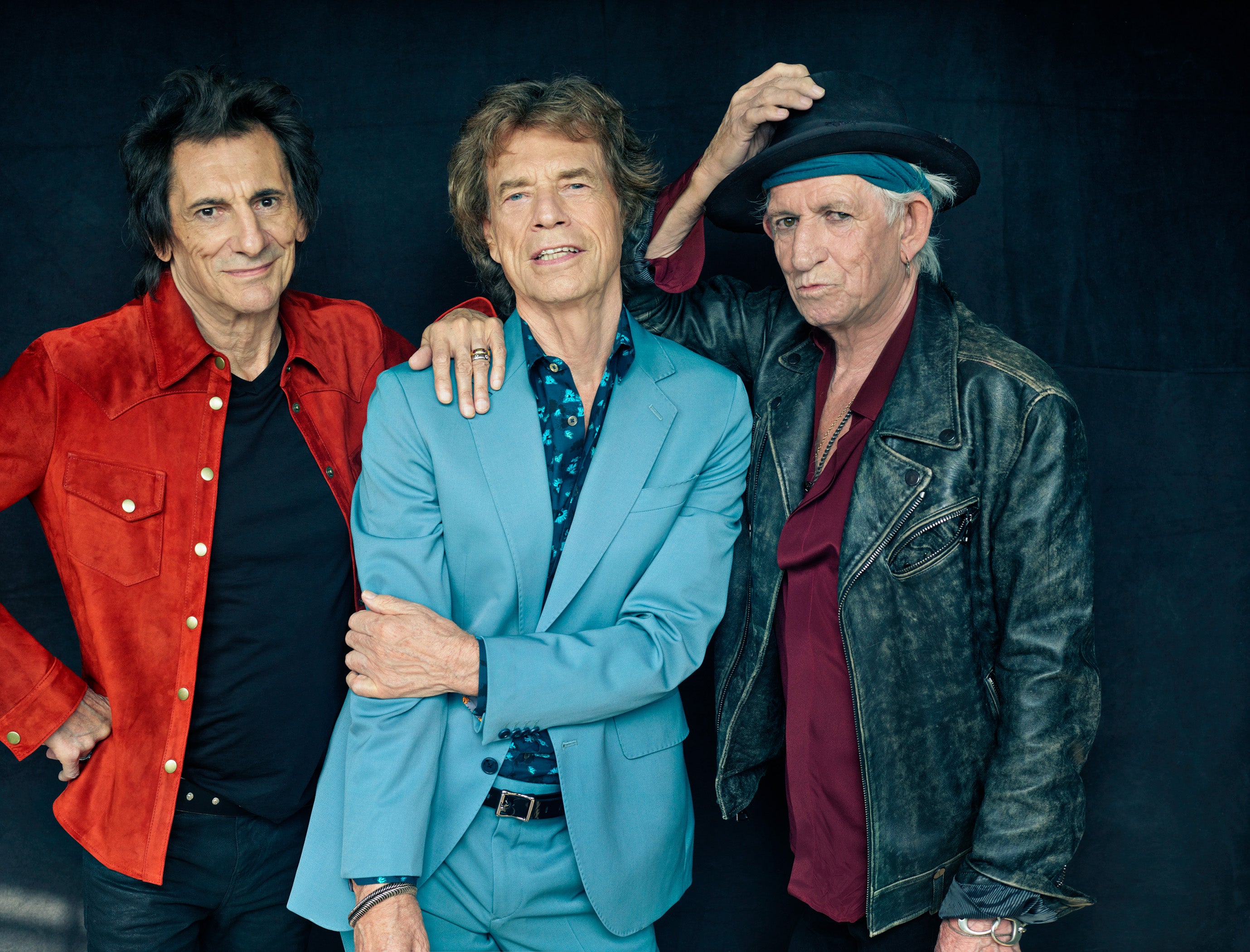The Rolling Stones’ Keith Richards: ‘Don’t get me going on modern-day music. It’s a one-way toilet’
Mick wanted the new record done quick – and cracked the whip to get the boys to knuckle down, as the ghost of Charlie Watts hovered ‘right there, over our shoulder’ during recording. And Keith? Well, he’s still on crackling street-fighting form (and full of fire and fury about digital music) as he and the rest of The Rolling Stones tell Paul Sexton about the making of ‘Hackney Diamonds’

The only way to cut a band is to put the boys in a room and play, and look in each other’s eyeballs,” says Keith Richards, fixing me with a glare. “Don’t get me going on modern-day music. Push-button drums and everything synthesised. Digital recording is a one-way toilet.”
The Human Riff is, like his bandmates, feeling decidedly bullish about the Stones’ first album of original material in 18 years, Hackney Diamonds, and rightly so. This is the record their fans have wanted them to make for decades, deftly correcting any suggestion of their becoming little more than a heritage act or a money-printing corporation.
In the second half of the band’s discography, there are plenty of undervalued gems, but there has sometimes been a nagging feeling that they were gradually turning into the world’s best Rolling Stones tribute act. This time, as Mark Beaumont puts it in his four-star review in The Independent, Mick Jagger delights in conjuring “their bed-hopping mid-Sixties days as rock’n’roll reprobates drenched in ‘the smell of sex and gas’ at ‘the filthy flat in Fulham’”, then “bawls and yowls about blurry nights, media intrusion and relationship ructions like an eternal A-list twentysomething”.
So it was that last December, in the newest chapter of a story latterly written at their own languorous pace – recording haphazardly across continents, sometimes going months without speaking to each other – The Rolling Stones set themselves a collective wake-up call.
After taking their 60th anniversary tour around the arenas of Europe, and just when they might have been thinking of retreating back to their respective opulent boltholes, along came a concept from their formative days: studio sessions with a strict deadline.
Hackney Diamonds is the result, and to the band’s quiet satisfaction, it turned into more than they dared hope. Even without getting drawn into the hoary “best album since...” debate, it’s a very long time since they sounded this spirited, cohesive or relaxed with their legacy. The irony of such discipline is not lost on Richards.
“It’s a weird thing, right?” he muses. “You work all your life to say ‘No deadlines!’ This is what I’ve worked for. But no, you do need them, and that was the thing about this record. I would have called the damn album ‘Deadline’.”

When Mick Jagger told his bandmates that they must aim to finish their new record by Valentine’s Day, just three weeks after tracking dates in Los Angeles started in earnest, there were murmurings of doubt and disquiet. They may have spent their recent era breaking their own box office records on a series of global excursions, but the rest of the 18 years since their last studio album of new songs, 2005’s A Bigger Bang, had been characterised by drift and delay.
Richards, beaming and chortling at the end of a Zoom connection, is happy to apportion praise. “I’ve got to give Mick hats off for this push,” he tells me. “He said ‘Come on, we’ve just got to do something. Doesn’t matter what we do, we’ve got to make a record.’ I said ‘Ok, let’s not pussyfoot about. You’ve got what you want to sing, let’s go.’ And the man had got a lot stored up.”
These latest of my dozens of encounters with the Stones over some 30 years find them undeniably refreshed by a triumphant late entry in their bejewelled catalogue. There’s an almost intangible sense of renewed camaraderie about them, and an awareness of their collective responsibility to the most famous marque in rock history. Yes, it has to do with advancing years and the passing of their truly beloved Charlie Watts, but it’s also born of an unspoken realisation of what they mean to us, and to each other.
Jagger, just done with filming duties for the day, is warm, chatty and impossibly spry. Ronnie Wood, a few days earlier, looks healthier than for a long while, greeting me with a hug as his wife Sally patiently awaits their dinner date afterwards. Mick is disarmingly honest about the Stones’ failure to grasp the recording nettle in the past decade and a half, during which time they became a fabulous touring jukebox, but a jukebox nonetheless.
“We weren’t doing nothing, but I think we were just content with touring, to be honest,” he says. “We found that enough, and we didn’t want to work hard enough in between tours. I mean, I was writing the whole time, but we weren’t getting together and finishing things. We recorded a lot of stuff and we did a lot of sessions, but there was no deadline, there was no ‘Let’s finish these next week.’ It was just, ‘Do two weeks’ recording,’ and then there were no plans to come back together again.”
Hackney Diamonds began with two try-out sessions that bore fruit as soon as they progressed to Henson Recording Studios in LA. The secret sauce was the audacious choice of a new producer in 32-year-old New Yorker Andrew Watt, described by Wood as “full of front” and by Richards as a “pushy little f***er”.

Watt’s rise to a 2021 Grammy as Producer of the Year was simultaneously observed by both Jagger, ever vigilant of new music, and Paul McCartney, who recommended him to Wood. Watt had been working with Macca and Elton John, both of whom make splendid cameos on the Stones album.
“Andrew bosses us around, and it’s so encouraging and pleasing to follow his orders,” says Wood. “And I get off when Keith listens to him. Normally, Keith would go ‘Get the f*** out,’ which he has done, but the thing is, it’s backed up by the fact that Andrew can play. He’s got an amazing feel with the board in the studio. This is exactly what we needed.”
With long-time bassman Darryl Jones unavailable for the sessions, Watt filled that role for much of the record, with both Richards and Wood also taking turns. So did the returning Bill Wyman, on “Live By the Sword”, on which Elton invokes his early days of bar-room piano. “I spoke to Elton on Zoom,” says Wood, “and he said, ‘I’ve got to play on some songs, Ron!’ I went ‘Join the queue!’”
Elton John said, ‘I’ve got to play on some songs, Ron.’ I went, ‘Join the queue!’
In a charming tribute, that’s one of two tracks with drum parts recorded in 2019 by Watts. “I am emotional about that, but I like the fact that he’s on it, in another way,” says Jagger. “We do have some really great tracks with Charlie on, that we recorded in that period, so who knows, we might put some others out.”
Watts subsequently gave his blessing for compadre Steve Jordan to take his seat if he was ever unavailable, and Richards praises the “sterling job” that Jordan does on the rest of Hackney Diamonds. Adds Wood: “It’s that unspoken word of trust, once you’ve set the all-important tempo. Say it’s Mick’s song, he would establish the tempo, and Steve’s right in there. We adjust the sails, as it were, and float on.”
Jagger explains how the classic lineup from the 1960s to the 1990s was recreated on “Live By the Sword”. “We asked Bill to come in. I said ‘Do you want to do this? It’s an old track with Charlie, not one of the ones we just recently did,’ and he said ‘Yeah, I’d love to do it.’ So it does have a slightly different groove, that song, because you’ve got Bill and Charlie, who are the original rhythm section.”

I’ve never had a conversation with Richards in which he didn’t mention how honoured and lucky he felt to have Watts behind him on stage and in the studio. Now he wears his heart even more openly. “I have a picture of him, as I walk out of my bedroom every day,” he says. “The first thing I see is a portrait of Charlie Watts, and we tip our hats.
“He’s right there, over the shoulder, and all I know is that he’s very happy that the band’s still going. So now I work for [original Stones pianist and road manager] Ian Stewart [who died in 1985] and Charlie Watts. They’re both my bosses now, and I’ve got to keep it going, man.”
McCartney’s part is a rumbling fuzz bass solo on “Bite My Head Off”, which recalls the loose-limbed deconstruction of “Respectable” and other post-punk Stones rockers of the late 1970s. “I get you, yeah,” nods Keith. “That does remind me of a Some Girls track. And then Macca walked in, and we were short of a bass player! ‘Guess what you’re doing, pal!’ Hey, Paul’s great fun to play around and be around. He’s a survivor.”
Macca walked in when we were short of a bass player. ‘Guess what you’re doing, pal!’
The sessions also included personal visits from Lady Gaga and Stevie Wonder, who make brilliantly spontaneous contributions to the testifying gospel soul that is “Sweet Sounds of Heaven”. But there was never any suggestion of casting megastars for the sake of it.
“It’s not like a guest appearance for nothing,” says Jagger. “They really fit, they’re the perfect players for those particular things. Elton fits in very well playing his boogie thing, it’s very simple, a bit like our original piano player, Stu [Ian Stewart] used to play. And Stevie – we used to have Billy Preston, who used to play with us a lot. You needed Stevie’s very effusive piano style to bring that song out.”
“I think maybe the other thing about the Stones, the other glory we can put in our cap, is that we’ve managed to hook so many generations now,” says Richards. “‘Sweet Sounds of Heaven’ is, in a way, indicative of it, with Stevie Wonder from that generation and Gaga from the next. There’s a warmth and a feeling that music is music, and here it all is. It feels good, y’know.”

Such is the fresh momentum that live shows next year are looking distinctly possible, as is a second album at some point from these fertile sessions. At this improbably late juncture, the glint is back in their eye. “I do wish we’d done it sooner,” admits Jagger. “We’d been messing around too long and not concentrating, and not being clear enough about our goals.
“I’m not really going to blame everyone for that. It’s my own fault as much as anyone else’s. But I did realise that we couldn’t let it drift any more, and we had to do it properly, and in a quick way, with someone that was going to really concentrate on it. And that’s what we did.”
‘Hackney Diamonds’ is out now. Paul Sexton’s book ‘Charlie’s Good Tonight: The Authorised Biography of Charlie Watts’ is published by Mudlark/HarperCollins






Join our commenting forum
Join thought-provoking conversations, follow other Independent readers and see their replies
Comments